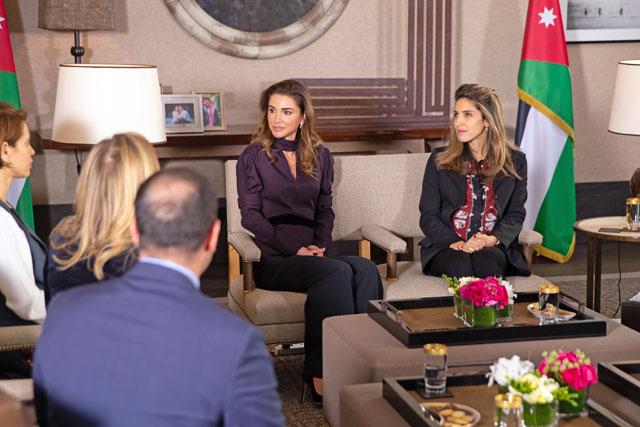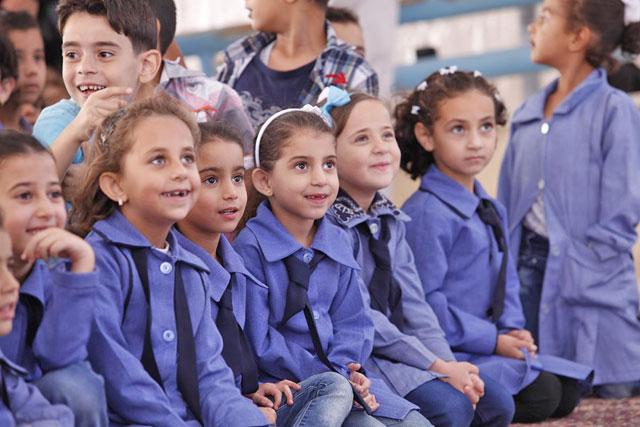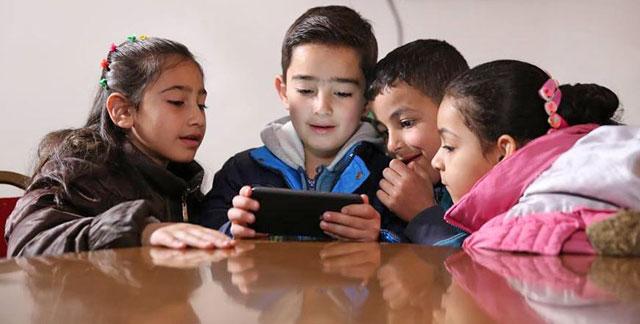You are here
Jordanian start-ups win two of three top prizes in education award
By JT - Feb 11,2019 - Last updated at Feb 11,2019
AMMAN — The Queen Rania Foundation for Education and Development (QRF) announced the winners of The Queen Rania Award for Education Entrepreneurship in the Arab World on Monday, awarding grants to three Arab start-ups at the forefront of educational reform to support their future growth and impact ambitions.
Launched in September 2018, the award recognises the achievements and potential of home-grown businesses working to improve education systems in the Middle East and North Africa (MENA) region, according to a press statement by Her Majesty’s office.
The competition received over 400 eligible applications that are aligned with its vision of changing the reality of education by transforming learning challenges into opportunities through socially-minded entrepreneurship. Applications were assessed on innovation, impact and scaling potential by a team of independent experts with knowledge spanning across impact investing, EdTech and education research.
The three winners stood out for their commitment to addressing at-scale learning challenges that matter to the region’s future prosperity and well-being.
Amman-based Jordanian start-up Little Thinking Minds — a leading education technology company that creates advanced digital solutions and resources for school-aged children — came in first place. According to the judges, the company demonstrated exceptional dedication towards improving learning outcomes, enhancing social and cultural connectedness across the MENA region, effectively addressing the urgent need to support students to be fluent Arabic readers and writers and measuring the impact of its work.
Coming in second place was Lebanese start-up KamKalima, an intelligent K-12 school platform that supports the teaching and learning of Arabic language skills. KamKalima offers content, tools, and deep data analytics to help teachers in lesson preparation, student progress reporting and follow-up and assessment of learning. Students benefit from personalised learning support, quicker feedback and dynamic Arabic content in an immersive design for higher engagement in learning. Judges also rated the start-up well for its ambitions to use artificial intelligence (AI) to support learning and for well-designed EdTech for Arabic language learners in the middle and high school years.
Another Jordanian start-up, Hello World Kids, earned third place in the competition. With coding becoming the new literacy, Hello World Kids has become the first educational solution specialised in teaching computer and mobile programming for children at schools, starting from the elementary stage. Impressed by the start-up’s ability to bridge the gap between technology and education, judges also saw its notable success in drawing attention to the need to support more children to be digital makers and creators.
Throughout the competition’s evaluation process, it was evident to the QRF that there is a vibrant and talented group of entrepreneurs in the region who are willing to devote their energies to the important task of improving education and learning. Many of them are doing so against the odds, which highlights the need to provide them with more support.
Commenting on the competition, CEO of the QRF, Bassem Saad, said: “This competition has proven to be a success, for not only was it launched to recognise entrepreneurial achievements in the education sector, but to ask — are we doing enough to support these innovators? Hopefully, with competitions like these, we can strategise future collaborations with education start-ups in the Arab world and collectively push the wheel of education reform.”
The QRF aims to be a leading regional resource and incubator for new and innovative ideas and initiatives in education, stemming from the belief that education is the foundation of economic, political and social development. The QRF’s work is focused on identifying gaps and opportunities for developing new education programs, with the aim of influencing policy and creating transformational change on the ground, according to the statement.
Related Articles
AMMAN — Her Majesty Queen Rania on Tuesday met with the winners of the Queen Rania Award for Education Entrepreneurship to congratulate them
AMMAN — The Queen Rania Foundation for Education and Development (QRF) on Tuesday announced the launch of The Queen Rania Award for Educatio
AMMAN — The Queen Rania Foundation (QRF) recently partnered with the Los Angeles-based non-profit XPRIZE and various organisations to form a



















